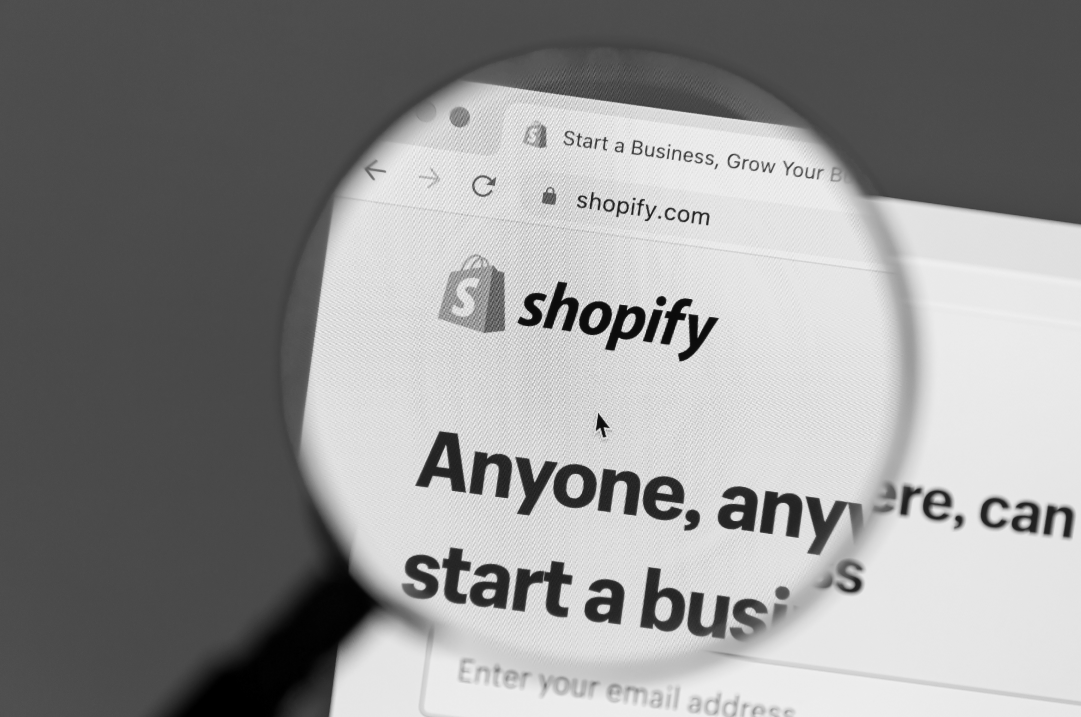Online purchasing is the default for most B2B buyers. They research products, compare prices, and make purchasing decisions without ever talking to a salesperson. Your competitors know this, and they structure their sales models and platforms to enhance the buying experience accordingly. The question is: are you in a position to reap the full rewards of B2B ecommerce?
Current market trends and statistics
Traditional sales channels don’t hold the appeal they once did. Business buyers and B2B buyers want the same seamless experience they get when shopping for themselves on Amazon from every vendor. They expect 24/7 access to product information, instant pricing, and the ability to place orders whenever it's convenient for them.
This isn't a trend. It's the new reality that’s here to stay. Companies that stick to phone calls, email, and brick-and-mortar orders watch their market share shrink while competitors with a solid digital presence capture customers who value convenience and efficiency.
The data is undeniable: B2B ecommerce is growing at double-digit rates year over year. Younger decision-makers who grew up with online shopping are now in charge of procurement budgets. They don't want to schedule calls to check product availability or wait for quotes via email. They want instant access to product.
Can Shopify be used for B2B?
Shopify started as a B2C platform, but it has evolved into something much more powerful. The platform now offers dedicated B2B features that address the unique challenges of business-to-business selling.
Here's what makes B2B different from B2C:
- Volume discounts and contract pricing
- Multi-user accounts with approval workflows
- Integration with existing business systems
- Longer sales cycles with relationship management
- Complex shipping and fulfillment requirements
Shopify addresses each of these needs. The platform's B2B capabilities include native features for account management, custom pricing, and bulk ordering. Third-party apps fill any gaps, creating a comprehensive ecosystem that rivals enterprise solutions.

The key difference between regular Shopify and Shopify Plus matters here. While basic Shopify works for simple B2B needs, Shopify Plus provides the advanced features most B2B businesses require: extensive customization options, advanced reporting, and enterprise-level integrations.
Top reasons why Shopify is great for B2B
Ease of use and quick setup
Most B2B ecommerce platforms require months of development and technical expertise. Shopify gets you online in weeks, not months. The user-friendly interface means your team can manage the retail business store without hiring developers or learning complex systems.
Pre-built themes designed for B2B businesses eliminate the need for custom design work. Your team focuses on selling products instead of troubleshooting technical issues. Time-to-market becomes a competitive advantage rather than a bottleneck. However, there are common Shopify mistakes that can derail even simple implementation.
Scalability and performance
Cloud-based infrastructure handles traffic spikes and high-volume transactions without performance issues. With Shopify, your store operates smoothly whether you're processing 10 orders or 10,000 orders per day.
Global CDN ensures fast loading times for customers worldwide. Page speed affects conversion rates in B2B just as much as B2C. Customers expect professional, fast-loading websites that reflect the quality of your products.
Cost-effectiveness
Building a custom B2B ecommerce platform costs hundreds of thousands of dollars and takes years to develop. Shopify provides comparable functionality at a fraction of the cost and time investment.
Transparent pricing structure eliminates surprise costs. You know exactly what you're paying each month, making budgeting and ROI calculations straightforward. Faster implementation means faster return on investment.
Integrations
API-first architecture allows connections to existing business systems. Your Shopify store integrates with ERP systems, CRM platforms, accounting software, and inventory management tools, while also enabling custom integrations for enhanced functionality. Data flows seamlessly between systems, eliminating manual data entry and reducing errors.
Native integrations with popular business tools save time and reduce complexity. Common integrations include QuickBooks for accounting, Salesforce for CRM, and various ERP systems for inventory management.

Mobile responsiveness
Mobile responsiveness isn't optional anymore. B2B buyers research and purchase products on their phones and tablets far more often than they break out their laptops. Shopify themes include built-in mobile optimization, ensuring your store looks and functions perfectly on any device.
Mobile-first design philosophy recognizes that many B2B buyers prefer mobile interactions. Quick product lookups, easy reordering, and mobile-friendly checkout processes improve customer satisfaction and increase order frequency.
Security and compliance
PCI DSS Level 1 compliance protects customer payment data. SSL certificates and secure payment processing provide peace of mind for both you and your customers. Regular security updates and monitoring happen automatically, reducing your security management workload.
GDPR compliance features help businesses meet data protection requirements. These built-in capabilities reduce legal risks and demonstrate professionalism to security-conscious B2B customers.
5 important features of Shopify B2B
Shopify’s native B2B capabilities address the unique challenges of business-to-business selling. Here are the five most impactful features for B2B companies:
Customer account management
Multi-user company accounts allow entire teams to place orders while maintaining control. Role-based permissions ensure that only authorized users can approve large purchases or access sensitive pricing information.
Approval workflows prevent unauthorized spending and ensure purchase orders follow company procedures. Account-specific pricing and product visibility create personalized experiences for different customer segments.
Pricing and catalog management
Shopify offers several features to customize how pricing appears for each of your customer segments.
Tiered pricing rewards large-volume customers with better rates. Volume discounts encourage bigger orders and build customer loyalty. Hide prices for quote-only products maintain pricing flexibility for complex or custom items.
Customer-specific catalogs show only relevant products to each account. This feature simplifies the buying process and prevents confusion about product availability or pricing.

Order management
Bulk ordering features speed up the purchasing process for customers who need to order multiple products or large quantities. Quick order forms and CSV upload capabilities reduce time spent placing routine orders.
Configure order approval processes to integrate with your existing company procedures. Recurring orders and subscription management options allow you to automate repeat purchases, improving customer retention and predictable revenue.
Payment and financing options
Multiple payment methods accommodate different customer preferences and requirements. Integration with financing partners provides payment flexibility for large purchases.
Invoice generation and management streamline accounts receivable processes. Credit application and approval workflows help you extend payment terms to qualified customers while managing risk.
Reporting and analytics
B2B-specific reporting dashboards provide insights into customer behavior and sales performance. Track customer lifetime value to identify your most valuable accounts and focus retention efforts accordingly.
Sales performance reporting by account and rep helps optimize territory management and compensation plans. Inventory turnover and demand forecasting improve purchasing decisions and reduce carrying costs.
Who should use Shopify for B2B?
Small to medium-sized businesses
Companies with 50-500 employees often find Shopify's feature set matches their needs perfectly. The platform provides enterprise-level capabilities without enterprise-level complexity or costs.
Businesses transitioning from offline to online sales appreciate Shopify's straightforward approach. The learning curve is manageable, and support resources help teams get up to speed quickly.
Manufacturers and wholesalers
Direct-to-retailer selling models work well on Shopify. The platform handles complex pricing structures and volume discounts that manufacturers need to offer different customer tiers.
Dealer and distributor network management becomes easier with customer-specific catalogs and pricing. Geographic restrictions and territory management features help protect existing channel relationships.
Service-based businesses
Professional services companies use Shopify to sell digital products, subscriptions, and service packages. The platform handles recurring billing and digital product delivery efficiently.
Software companies leverage Shopify for license sales and subscription management. Digital product fulfillment happens automatically, reducing manual work and improving customer experience.

When Shopify might not be the best fit
Businesses with complex enterprise requirements sometimes exceed Shopify's capabilities. If you require extensive customization or industry-specific features, it’s worthwhile to explore other, more specialized platforms or custom development.
Highly regulated industries may need platforms designed to meet compliance requirements. Healthcare, finance, and government sectors often have unique needs that general-purpose platforms can't address.
Companies with existing investments in other ecommerce platforms might find migration costs outweigh Shopify's benefits, especially if current systems meet their needs adequately. For a comprehensive comparison of different platform options, see our guide to choosing a website platform.
Conclusion
B2B ecommerce is non-negotiable for modern companies looking to expand their customer base. Customers expect online ordering capabilities, and your competitors are already providing them. Shopify offers a fast, cost-effective way to meet these expectations that is comparatively simple, without the expense of custom development.
The Shopify platform balances ease of use with powerful B2B features. Your team can launch and manage a professional B2B online store without becoming ecommerce experts. That means more time selling and less time troubleshooting technical issues.
At BRIGHTSCOUT, we build Shopify stores that turn browsers into buyers. Our approach combines strategic thinking with flawless execution, creating ecommerce experiences that drive real business results.
Ready to transform your B2B sales with the aid of Shopify’s powerful platform? We can help. Let’s talk.
Shopify for B2B ecommerce FAQ
How long does it take to set up a Shopify B2B store?
Basic setup takes 2-4 weeks for simple stores. More complex implementations with custom features and integrations typically require 6-12 weeks. The timeline depends on your specific requirements and how much customization you need.
Can I migrate my existing B2B website to Shopify?
Yes, migration is possible and often straightforward. Product data, customer information, and order history can typically be transferred. The complexity depends on your current platform and data structure.
Is Shopify secure enough for B2B transactions?
Shopify maintains PCI DSS Level 1 compliance, the highest level of payment security certification. The platform handles billions of dollars in transactions annually and includes enterprise-level security features.
Does Shopify support net payment terms?
Yes, through apps and customizations. You can set up net 30, net 60, or other payment terms for approved customers. Invoice generation and accounts receivable management integrate with accounting systems.
How does Shopify compare to other B2B ecommerce platforms?
Shopify offers better ease of use and faster implementation than most enterprise platforms. It provides more B2B features than basic ecommerce platforms. The trade-off is less customization than fully custom solutions.
What are the limitations I should be aware of?
Advanced ERP integrations may require custom development. Complex pricing rules might need third-party apps. Transaction fees apply unless you use Shopify Payments. Multi-currency B2B pricing can be challenging without additional apps.



.png)
.png)
.png)

